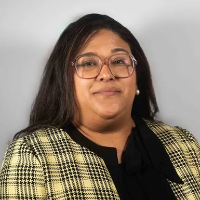 Dallas Divorce & Family Law Lawyers, Texas
Dallas Divorce & Family Law Lawyers, Texas
Sponsored Law Firm
-
 x
x

Click For More Info:
-
Andrew V. Howard, PC
1717 Mckinney Ave Suite 700 Dallas, TX 75202» view mapDivorce & Family Law Experience You Can Trust
Attorney Andrew Howard is dedicated to protecting the rights of his clients and will stop at nothing to ensure they are treated fairly in court.
214-226-1848
Sponsored Lawyers
1-10 of 85 matches
Estate Planning, Family Law, Criminal, Business, Estate
Andrew Howard is a practicing attorney in the state of Texas specializing in Accident & Injury, Divorce & Family Law, and Criminal Defense. Mr. Howard received his J.D. from the Regent University School of Law in 1995.
(more)Divorce & Family Law, Divorce, Child Custody, Alimony & Spousal Support, Prenuptial Agreements
Mr. Pierret attended the University of Dallas on full academic scholarship, obtaining a degree in Philosophy, and went straight to law school at St. Mary’s University in San Antonio. His first job as an attorney brought him to Fort Worth as a briefing attorney for Justices Clyde Ashworth and David Farris on the Fort Worth Court of Appeals, and he has remained in Tarrant County for the past 35 years. Mr. Pierret’s practice has always revolved around tort law, both plaintiff and defense, and he has been Board-certified in Civil Trial Law since 1991 and Personal Injury Law since 1998. He received a Top 10 Attorney Award in 2020 from the National Academy of Personal Injury Attorneys, and his practice at Bailey & Galyen is devoted to representing those who have been injured by someone else’s negligence.
(more)Divorce & Family Law, Custody & Visitation, Paternity, Child Support, Prenuptial Agreements
Professional, yet approachable. Confident, yet easygoing. I will tenaciously represent you with honesty, integrity and empathy. I come from a family of legal eagles, so this profession is in my blood…I have a true passion for the law. My father was a family law attorney before me. I started following him around the Courthouse when I was five, worked in his law office through high school, and served process through college. I grew up on family law and my instincts were honed on complex property, custody and enforcement from the time I was a child. My father would get a kick out of asking me questions about a property case or how to get custody under certain circumstances, and then take my answers and put them into pleadings. By the time I was licensed, I was ready to take on anybody – any issue. As my career took off, I learned that an effective attorney isn’t just aggressive and he doesn’t blindly follow the bullets as he shoots. An effective attorney is strategic and determined, has a strong sense of integrity, and is guided by values and faith. That’s how I try cases. There are two hundred ways to tell every story, but only one of those is the most persuasive. I know the family law process and I believe in it. I understand it and I can explain it to you because I have lived it my entire life. No one else will work harder to guide you through one of the toughest times of your life. I’m proud of what I accomplish – the complicated property cases I try, protecting the children, enforcing the Orders. It’s important for you to unequivocally know that I am committed to protecting you and your children during the battle of divorce, property division and custody disputes with the goal of you leaving here better than when you arrived. Divorce and custody disputes are often stressful, financially taxing and spiritually draining experiences. I will involve you and put you at ease by explaining the whole process, ensuring you understand and agree with our strategies. Experience counts. Yes, this is one of the hardest times of your life, but we take action today for a better tomorrow.
(more)Divorce & Family Law, Traffic, Criminal, DUI-DWI
Clients come to me during dark or difficult moments in their lives, seeking guidance and clarity on what to expect from the legal process. My primary goal is to listen and understand their situation, while providing step-by-step navigation through the process. Honesty is my guiding principle, and I am transparent with my clients to ensure they are fully informed about their options. With 25 years of experience, I have learned that being upfront is the best approach when dealing with serious matters. I work to offer clients all available tactical options to achieve their best outcome, even in challenging situations. Additionally, I aim to provide a "bigger picture" perspective on their case and emotionally prepare them for closure, to support them in moving forward after their case concludes. I began my professional journey as an intern with the Juvenile Division of the Dallas County Public Defender's office. After that, I got hired by the Dallas County District Attorney's office where I worked for a decade and gained valuable knowledge related to the criminal justice system. Later on, I decided to establish my own firm to use my experience in advocating for my clients' rights and offering legal assistance to anyone who requires it in family law or criminal defense. I am dedicated to protecting my clients' rights and ensuring fairness in the justice system. I handle cases ranging from minor traffic violations to serious felonies, and I ensure my clients feel secure and confident in the importance of their case. My belief is that everyone deserves justice and fairness, regardless of their status. To schedule your initial consultation, please submit a confidential online form, or call our office in Irving, TX: 469-845-3031.
(more)Divorce & Family Law
Jessica Lesser is a dedicated Attorney at The Law Office of Bryan Fagan, bringing a wealth of experience and a deep commitment to her role. Originally from Midland, Texas, Jessica began her legal career in the Dallas/Fort Worth area in 1997. Over the years, she expanded her professional horizons by living and practicing law in Scottsdale, Arizona, and Richmond, Virginia, before returning to DFW in 2000. Her journey through various cities and legal environments has enriched her perspective and sharpened her skills as a legal professional. In her personal life, Jessica treasures spending time with her family and finds joy in cooking, a hobby she holds dear. Her love for animals is evident in her volunteer work with an animal rescue organization, as well as her personal commitment to fostering dogs over the years. At home, she shares her life with her high school-aged son and a loyal Siberian Husky named Lucy, both of whom bring her immense joy and pride. Jessica’s passion for solving problems led her to pursue a career in the legal field. She is especially devoted to ensuring that the law is applied equally to all individuals, a cause she holds close to her heart. Her personal experience with divorce profoundly shaped her approach to her work. Having navigated the legal system as a client, Jessica gained invaluable insight into the challenges clients face, inspiring her to become a strong advocate for client education. She is deeply committed to equipping her clients with the knowledge they need to make informed decisions about their cases. Known for her authenticity, caring nature, analytical mind, and a touch of quirky charm, Jessica is highly regarded by both her colleagues and friends. Her dedication to her work and her clients is matched only by her adventurous spirit. One of her lifelong dreams is to spend a year traveling the country in an RV, a goal that reflects her curiosity and love for exploration. Jessica’s unique blend of professional expertise and personal warmth makes her an invaluable member of the Law Office of Bryan Fagan team.
(more)Divorce & Family Law
Deborah Coleman holds a double major in Political Science and Criminal Science from Midwestern State University, Wichita Falls, TX (1992), and earned a JD from Oklahoma City University School of Law (1995). A dedicated community member, Deborah Coleman was actively involved in church activities, including roles such as choir member, Youth Sunday School teacher, and chairperson of several committees. Although focusing on family recently, Deborah plans to return to church volunteer work once her youngest completes junior year. Originally from Wichita Falls and now based in Irving, TX, Deborah Coleman is a passionate sports enthusiast, supporting teams such as the Dallas Cowboys, Texas Rangers, Oklahoma Sooners, Dallas Wings, and Mavericks.
(more)Divorce & Family Law
Attorney Champagne practices law in the areas of Wills, Estates, Guardianship and Family Law. She earned her Juris Doctor from Washburn University of Topeka and was admitted to the State Bar of Texas in 2007. Fellow associates describe Attorney Champagne as a caring, tenacious and a passionate advocate for her clients. Her intelligent approach to resolving your complex legal issues stems from her client centered practice philosophy. Attorney Champagne is committed to finding the solution that fits your individual needs. Attorney Champagne invites you to experience excellent client service. Her goal is to treat every client with respect and dignity. When our firm accepts your case, you will know that your business is important to us.
(more)Family Law, Child Custody, Divorce, Adoption, Custody & Visitation
My name is Danielle Cortez-Harper, I was born in Dallas, Texas and I grew up in Rowlett, Texas. Growing up I played a multitude of sports including soccer, softball, basketball, volleyball, gymnastics, cheer, tap, ballet and jazz. I graduated from Garland High School in 1993 and received an academic scholarship to The University of Texas at Austin. While at UT, I was a member of Mu Epsilon Theta sorority, Hispanic Business Students Associated, and played intramural soccer. I graduated with a Bachelor of Business Degree in Finance in 1997. I then attended the Dedmon School of Law at Southern Methodist University (SMU) and graduated in 2000. I got married to my husband the same year. We have been married for going on 24 years. We have two sons, ages 21 and 15. I have enjoyed watching my kids participate in all of their extracurricular activities such as football, baseball and basketball. We have two cats and a dog. I enjoy reading in my spare time and traveling. I have been licensed to practice law in the State of Texas for 23 years. When first graduating from law school, I wasn’t sure what type of law I wanted to pursue. I was lucky enough to get my first job with a solo practitioner named David Lopez. I gained valuable experience in the field of family law while working with him. He eventually became a Dallas County Family District Court Judge and continued to be a mentor. I enjoy working in the Family Law community. I have met so many amazing attorneys and colleagues throughout the years. I love engaging with my clients and helping people find reasonable solutions to their legal matter, no matter how big or small.
(more)Criminal, Divorce & Family Law, Car Accident, Estate, Social Security
Dennis R. Croman has more than 50 years of legal experience representing clients in a wide variety of legal matters, including criminal defense, family law, motor vehicle accidents, estate administration, and social security appeals. Passionate about helping his clients achieve legal success, Attorney Croman sticks by his motto, "we fight until hell freezes over, & then we fight on the ice". To schedule a free consultation with an experienced Irving criminal defense attorney, call 972-887-3072 or visit our website.
(more)Family Law, Prenuptial Agreements, Child Custody, Child Support, Guardianships & Conservatorships
Anna Nika was admitted to the Texas Bar in May, 2005, after graduating from the Baylor University School of Law. She attended Dartmouth College, in Hanover, New Hampshire, where she earned her bachelor’s degree in history. For more than 18 years, Anna Nika has protected the rights of women and men in family law and divorce matters. She also handles tax disputes. Before entering private practice, she served as an assistant district attorney in Cameron County, Texas, where she honed her trial skills handling criminal matters. Originally from Springfield, Illinois, she moved permanently to Texas in 2002. She has practiced extensively in North-Central Texas, representing clients in Harris County, Bexar County, Travis County and throughout the Dallas-Fort Worth Metroplex. Anna is licensed by the Supreme Court of Texas and is currently working toward her board certification in family law. She has considerable trial experience, handling a wide range of divorce and family law disputes. She also advocates for clients in matters involving Child Protective Services. Anna is proud to be a part of the Bailey & Galyen team, thriving on helping families with all types of legal issues.
(more)


 Andrew Howard Dallas, TX
Andrew Howard Dallas, TX










